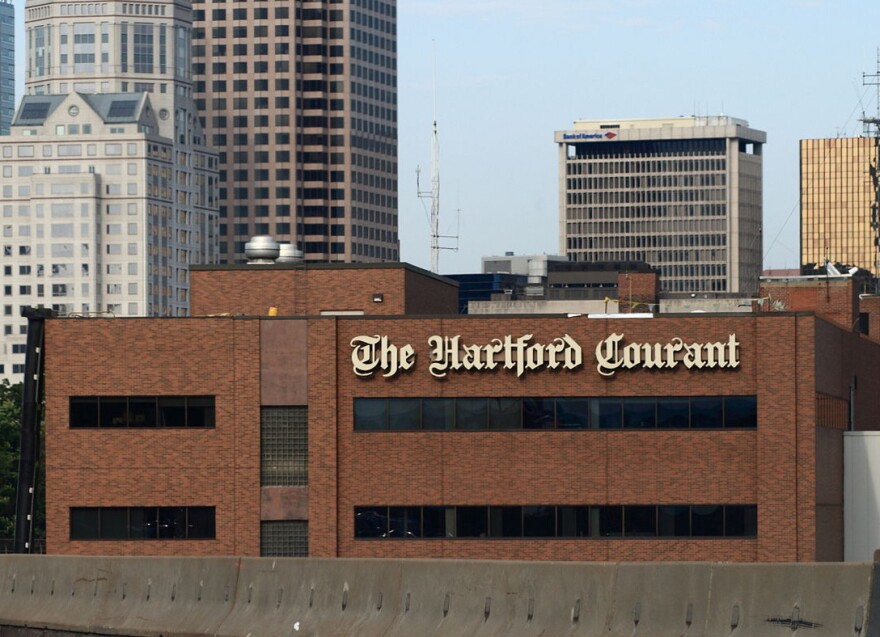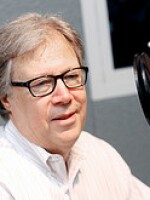We've lost some organizations, including several larger ones. Literally dozens of smaller, nimbler ones, have materialized in their place.
The good people at WNPR recently asked me if I would be interested in writing a weekly online piece about classical music for their website. Last December, they had started running a weekly piece on jazz by my old Hartford Courant colleague and friend, the great Owen McNally. What they wanted, they said, was a sort of companion piece to Owen’s.
As we often do in life, especially when flattery is involved, I said yes before I had any real idea of what I was getting into.
Once I started thinking it over, I realized I would need to decide some things: What will this weekly “piece” be, exactly? What will be its purpose? Not incidentally, since I had neglected to ask, I also wondered, what would the payment be? I thought about Calvin Trillin’s hilarious essay in which he recounts how his first editor at The Nation magazine proposed a per-column rate that was “in the high two figures.”
A Blog Is Born
I’ve now had a few weeks to think about these questions. As for the first one, I can say that this weekly piece will not really be a column, since that term implies a single-issue, closely argued opinion piece. I don’t think that’s particularly what the classical community around here needs right now.
It will also not be an online bulletin board -- a useful device, but one that we already have several of.
I decided the piece should simply be thought of as a blog, a term that’s new enough, and open-ended enough, to basically mean whatever one wants it to mean.
Except for the introductory specimen that you are presently reading -- I don’t plan to do any more extended personal riffs like this -- I envision the blog as a series of relatively short, music-related news items and observations, culled from many sources, including you. To make it easier for you (and me), I have set up a new dedicated email account for receiving press releases, tips, suggestions, etc. It is spmetcalf55@gmail.com.

The purpose of the blog will be severalfold:
• Call attention to important musical happenings in our state. This will often mean concerts, of course. It will also mean other things, like significant personal accomplishments – a book published, a composition premiered. From time to time, I suppose I will be obliged to report that somebody has performed his or her Finale Ultimo.
• Acknowledge and sometimes comment on developments in the larger classical world. For instance, the recent and ongoing upheavals at the Metropolitan Opera are worthy of mention, particularly since many Connecticut folks routinely go to New York for Met performances. Ditto for the activities of the Boston Symphony Orchestra, which welcomes a new music director this year. Tanglewood, an institution for which I have a special and longstanding affection, will certainly be looked in on during the summer months.
• Make mention of musical achievements by our students and young professionals. Connecticut produces an astounding number of young people who choose to make music their career, and nothing would do more to make me feel my autumnal years had meaning than to take public note of what these young phenoms are up to.
• I will also try to keep abreast of new books, articles, and recordings.
Déjà Vu (All Over Again)

Today things are, to put it mildly, decentralized.
All of this gives me a slight, not unpleasant feeling of déjà vu. If I may be allowed a quick, contextualizing bit of history:
I joined the Courant in 1982 as the paper’s first full-time classical music critic and reporter. Many things were different in 1982. For one thing, I could run up and down stairs rapidly and my knees barely ached at all.
More to the point, the way the local media worked was simpler. The Courant was, hands down, the dominant source of information and opinion concerning the arts.
True, the always-entertaining Hartford Advocate could be counted on for a sassy “alternative” perspective on things, but in terms of sheer comprehensiveness, not to mention total column inches, the Courant ruled. (The online universe, of course, did not exist, and may not have even been a gleam in Al Gore’s eye.)
One result of this hegemony was that if one of the paper’s arts writers (there were nine of us at the high-water point) wrote a story about an upcoming event, or a positive review, chances were good that that event would see a nice uptick in attendance. Good old days, indeed.
Today things are, to put it mildly, decentralized. The Courant still is a player, of course -- and an important one -- but the arts organizations now all have their own websites, as do the various arts advocacy groups like the Greater Hartford Arts Council, and other similar groups. Online media sites (including this one, which truly is among the more forward-looking, my engagement notwithstanding) are earnestly competing for our attention, and our clicks.
The music scene itself was also different in 1982.
The Bushnell’s vaunted Visiting Orchestra Series, which had been running since the 1930s, still was bringing to town big-name orchestras, and they played to packed houses.
Connecticut Opera, billed as the sixth-oldest professional company in the United States, was offering four big productions a year, and was occasionally doing audacious, headline-grabbing projects like the “Aida” and “Turandot” arena productions at the Hartford Civic Center.
There was a Hartford Chamber Orchestra. We had the always-resourceful Chamber Music Plus, and the protean wind quintet Soni Fidelis. I seem to recall chamber concerts in the Old State House, and candlelit concerts at the Avon Old Farms School refectory.

You can probably predict where this is headed: All of these entities are now gone. The exact circumstances of their demise varied, but the essence was the same: not enough ticket-buyers, or underwriters -- usually both -- to cover expenses.
Given these contractions, it’s tempting to say that the area’s serious music scene is in decline -- tempting, but I think incorrect.
It’s true that we’ve lost some organizations, including several of the larger ones. Literally dozens of smaller, nimbler ones, however, have materialized in their place. I won’t try to name them all here, but I will certainly be mentioning them in the coming weeks and months.
The point is we are still a musical state. I doubt if the grand total of musical activity is less than it ever was. It might well be greater.
There’ll Be Some Changes Made

The music scene is different. We need to acknowledge that, and try our best to understand it, and adapt to it.
Even the enduring institutions are evolving. The state’s largest classical music institution, the Hartford Symphony Orchestra, is still very much with us – but it recently joined hands with The Bushnell in a managerial restructuring that has attracted national attention. (One of the things I will pay special attention to in this blog is how that restructuring is going. We all, for a variety of reasons, have every reason to wish it well.)
We still have the redoubtable Real Art Ways, which even in the good old days got bounced around between several downtown locations. Today, RAW continues to bring large and necessary doses of the new to town, and does so in its seemingly permanent, appropriately versatile space on Arbor Street.

Of course, there are our colleges and universities: The Hartt School, Trinity, Yale, UConn, Wesleyan, our community colleges, and on and on – they are all doing important and imaginative things musically.
There is, in short, a lot going on. I will try to see to it that the blog both reflects that activity and, in some modest way, assists it.
Finally, with regard to the question of payment -- it turns out that, as I suspected would be the case, it is Trillinesque. That’s fine. I will be happy if the blog itself can come anywhere close to making that claim.
Steve Metcalf was The Hartford Courant’s fulltime classical music critic and reporter for over 20 years, beginning in 1982. He is currently the curator of the Richard P. Garmany Chamber Music Series at The Hartt School. He can be reached at spmetcalf55@gmail.com.





